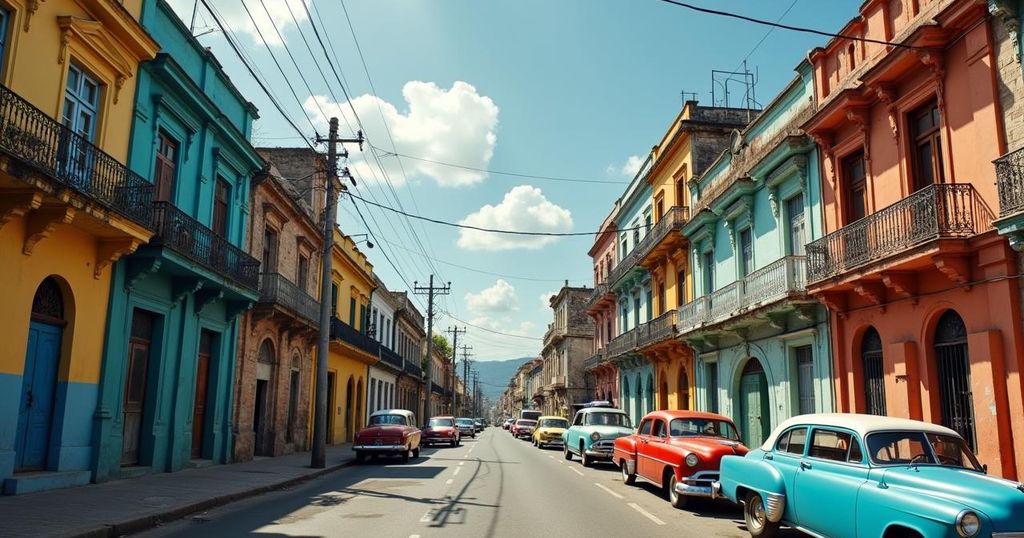Former Uruguayan President José Mujica critiqued the regimes of Daniel Ortega and Nicolás Maduro for their superficial engagement with democracy, asserting that their governments are indefensible in their current forms. He expressed skepticism about their ability to pivot towards genuine democratic practices, discussed the ineffective mediation attempts by Brazilian President Lula da Silva, and shared his views on the future of capitalism and socialism.
In a recent interview with El Observador, former Uruguayan President José Mujica expressed grave concerns regarding the regimes of Daniel Ortega in Nicaragua and Nicolás Maduro in Venezuela. He characterized their leadership as a superficial engagement with democracy, stating unequivocally that these nations are “indefensible as they stand today.” Mujica criticized both leaders for their refusal to openly declare their support for a more authoritarian regime, suggesting that their political choices have led to a convoluted state of governance. Mujica also addressed the commentary from the Tupamaro Liberation Movement (Movimiento de Liberación Nacional, MLN), which had labeled Venezuela’s elections—where Maduro proclaimed himself victorious—as an “exemplary electoral process.” Mujica distanced himself from this perspective, affirming that the actions and declarations of the current governments represent a significant departure from authentic democratic practices. In discussing Brazilian President Luiz Inacio Lula da Silva’s attempts to mediate between these contentious regimes, Mujica noted that Lula’s diplomatic efforts have so far been ineffectual, given the complex geopolitical situation. He remarked, “I trust Lula. But Maduro isn’t going to listen to him,” indicating a recognition of the difficulty even a powerful neighbor like Brazil faces in influencing Venezuela’s policies. Furthermore, tensions have risen between Lula and Ortega, particularly after Ortega accused Lula of seeking to impose American interests in Latin America. Additionally, Mujica expressed his stance on capitalism, voicing his belief that humanity must evolve beyond it. He characterized past socialist efforts as overly simplistic and remarked, “the paths tried have been astonishingly naïve.” Yet, he maintained faith in human potential, asserting, “I have the flaw of believing in humankind,” even as he critiqued the failures of past ideologies in addressing the needs of a complex society. In conclusion, Mujica’s analysis serves as a potent critique of contemporary Latin American politics, particularly spotlighting the fragile nature of democracy in Nicaragua and Venezuela while simultaneously addressing broader philosophical questions about capitalism and socialism that continue to define political discourse in the region.
The commentary by José Mujica provides insight into the current political landscape in Latin America, particularly focusing on the controversial regimes of Daniel Ortega in Nicaragua and Nicolás Maduro in Venezuela. Mujica’s firsthand experience as a former leader and his association with leftist political movements lend significant weight to his observations. These nations have faced criticism for undemocratic practices, and Mujica highlights the struggles faced by those attempting to mediate between these regimes, such as Brazilian President Lula da Silva. The dynamics of regional politics, including the historical context of socialism and capitalism in Latin America, are essential to understanding Mujica’s perspectives and the challenges presented by current leadership.
The remarks made by José Mujica underscore the complexities and contradictions present within the political regimes of Nicaragua and Venezuela. Through his critique, Mujica illuminates the inadequacies of both governments in embracing genuine democratic principles, while also reflecting on broader ideological struggles regarding capitalism and socialism. His insights contribute to an ongoing dialogue about the future of governance in Latin America and the potential for meaningful change in the political landscape.
Original Source: havanatimes.org






